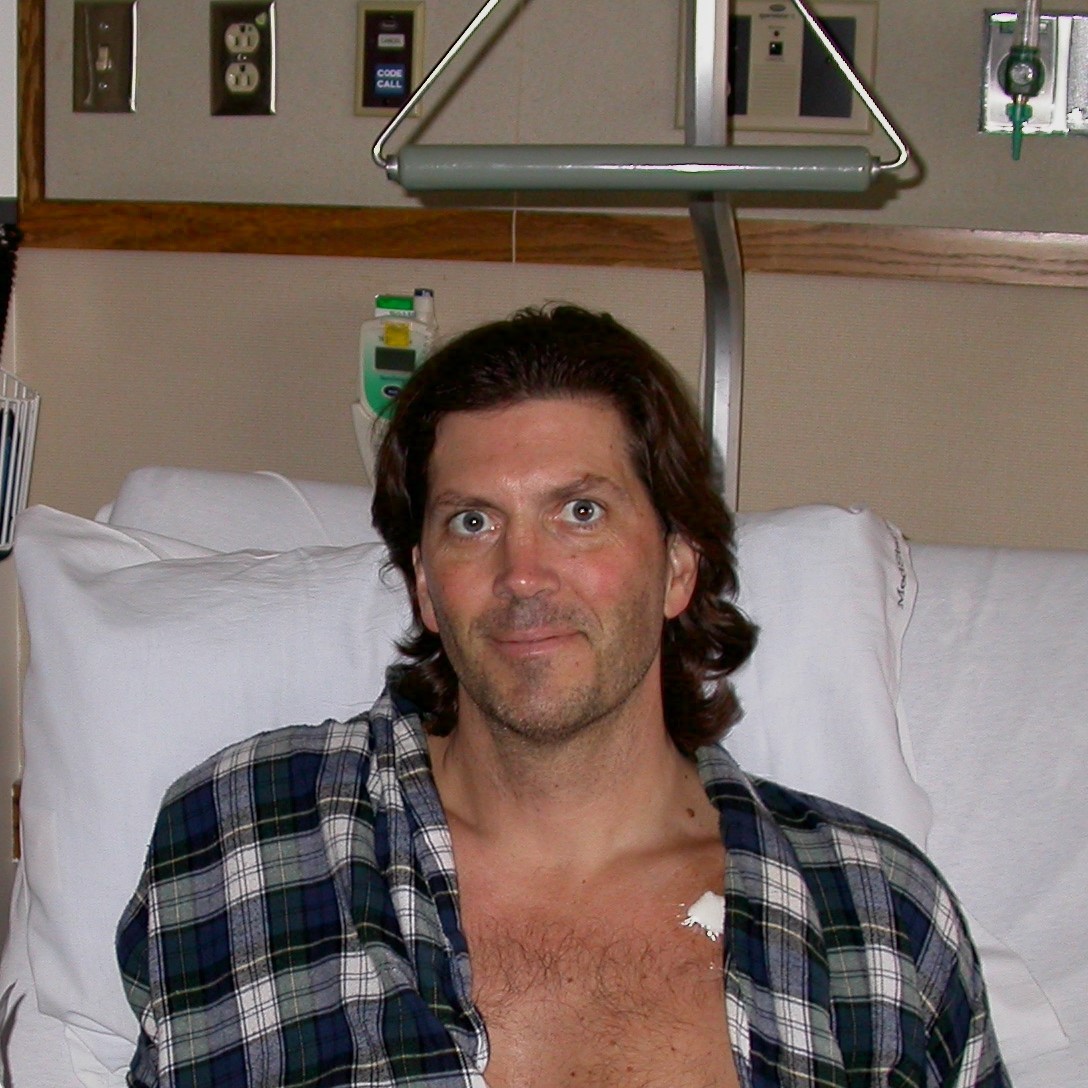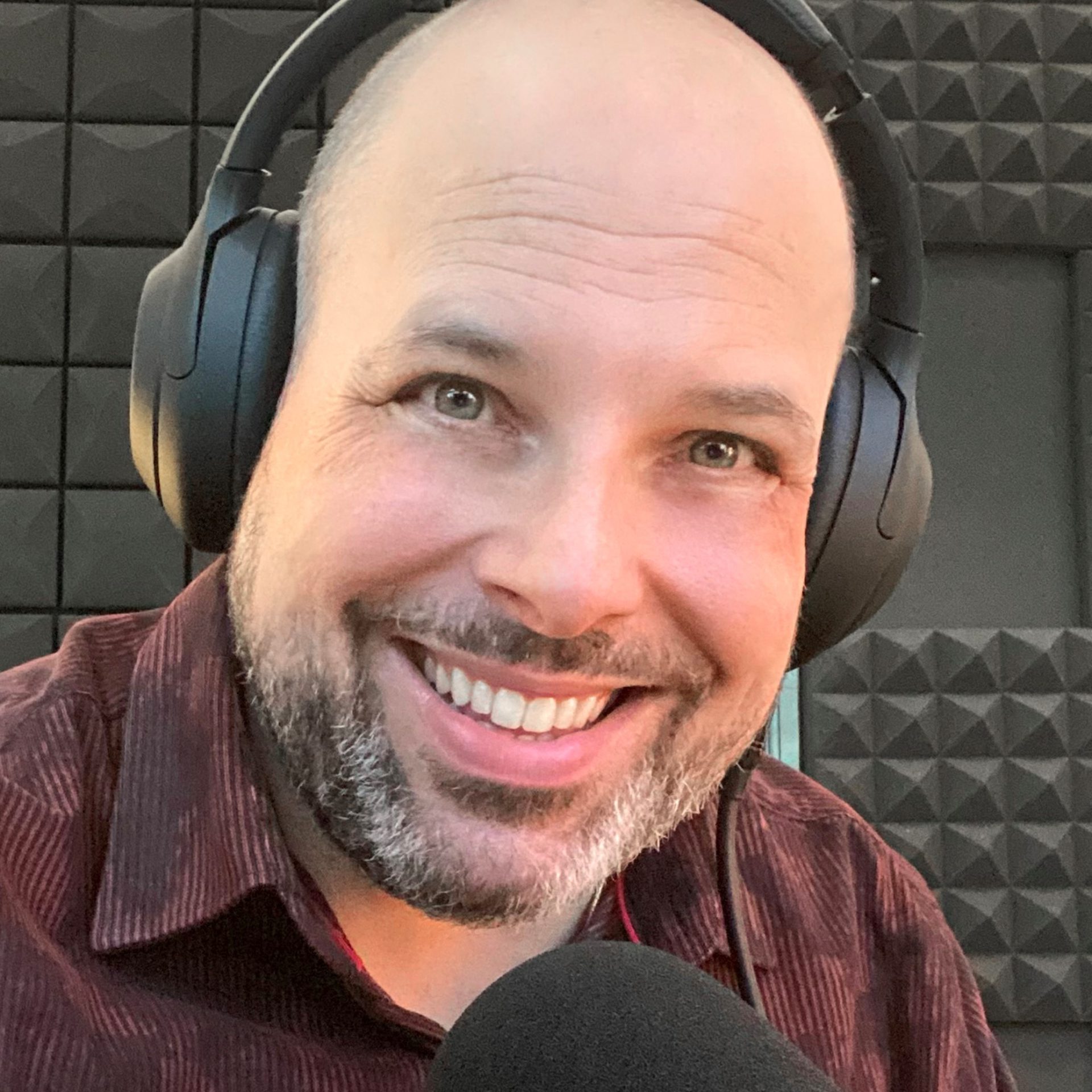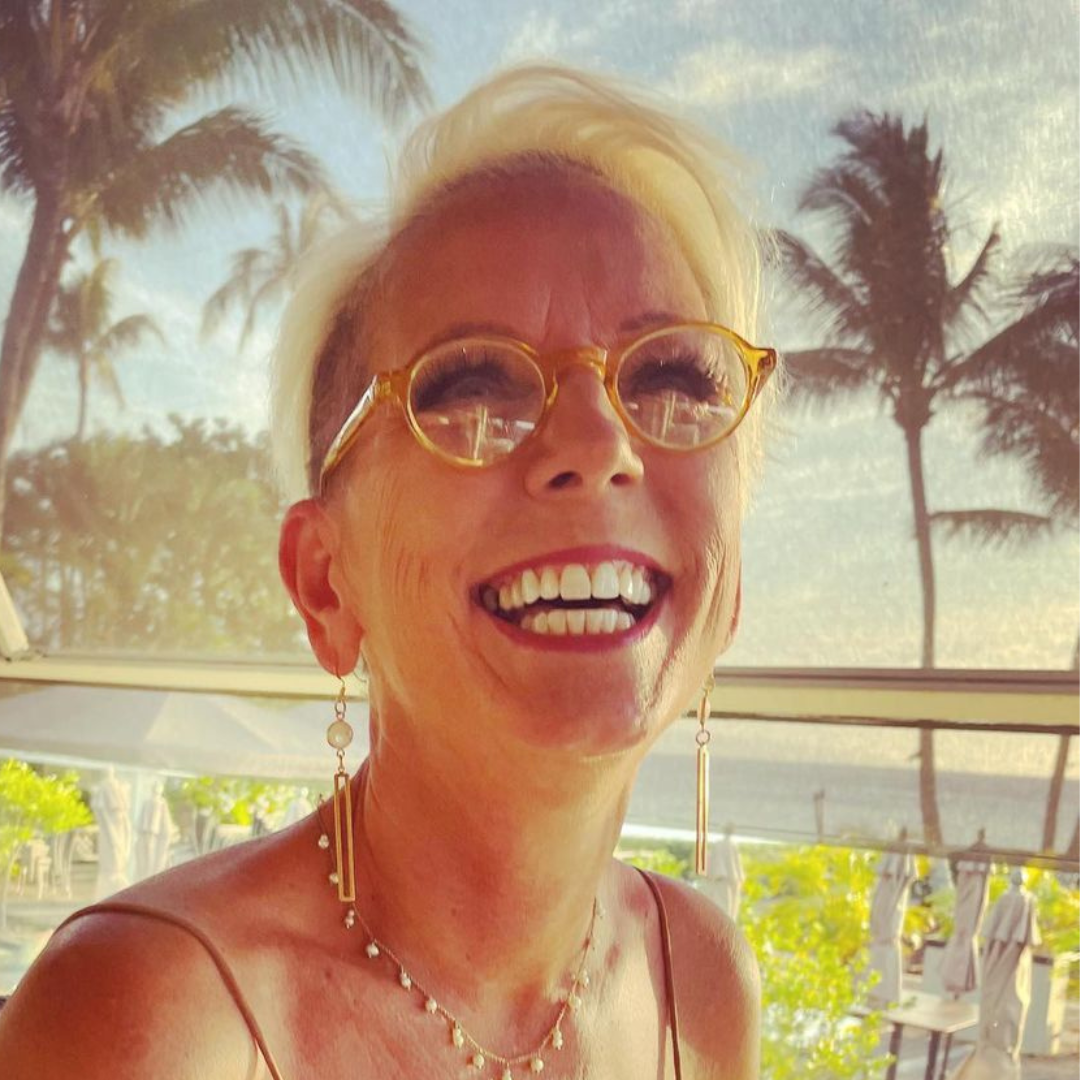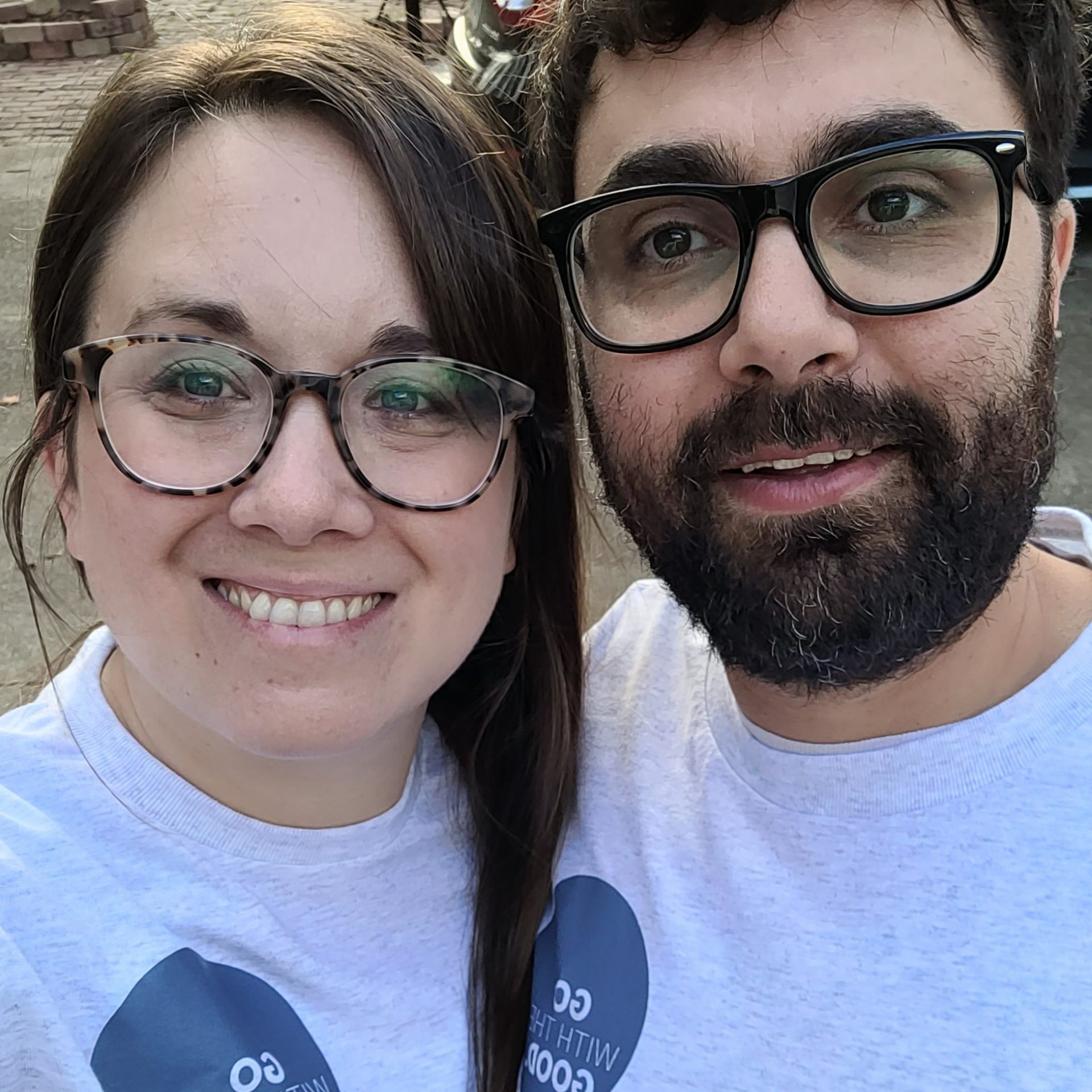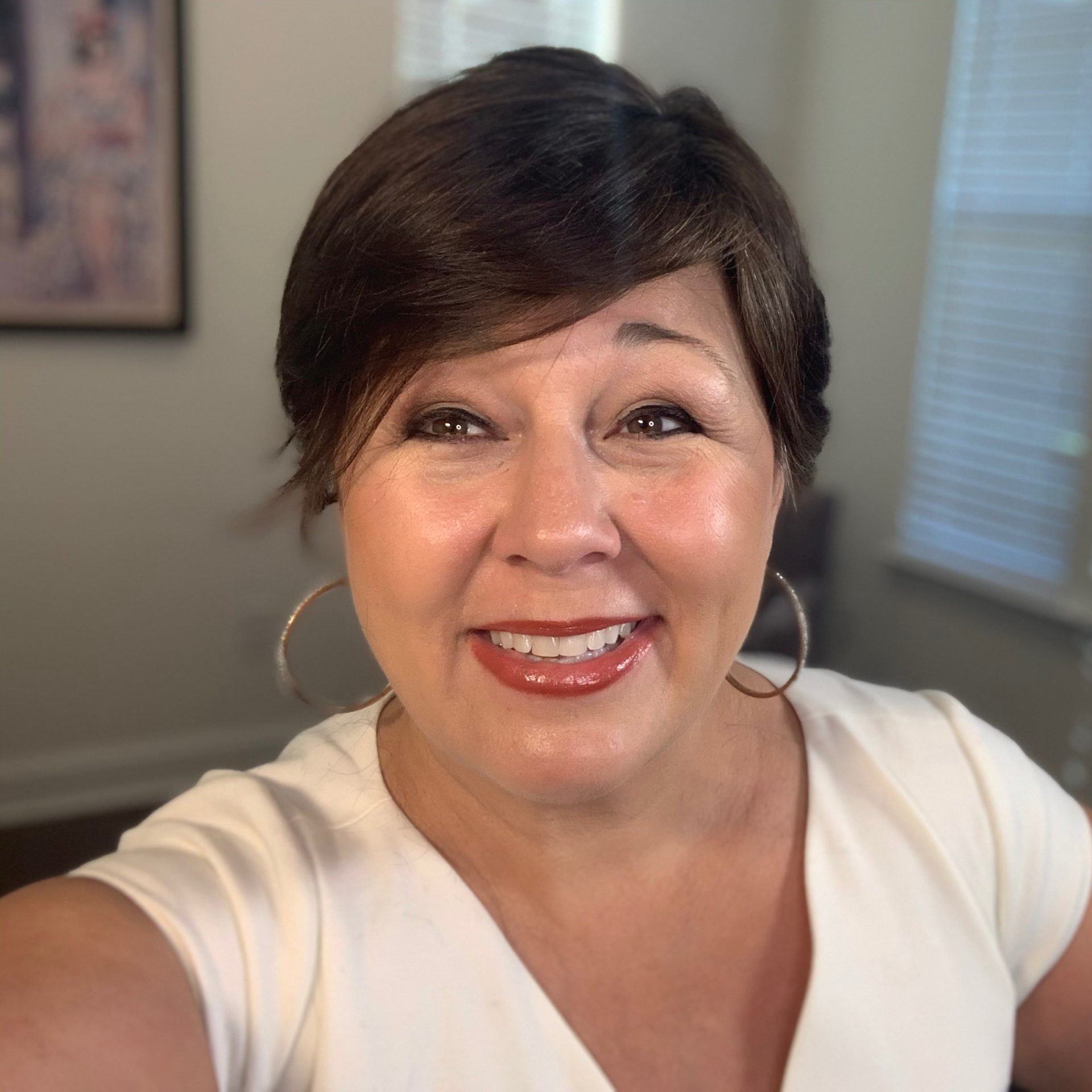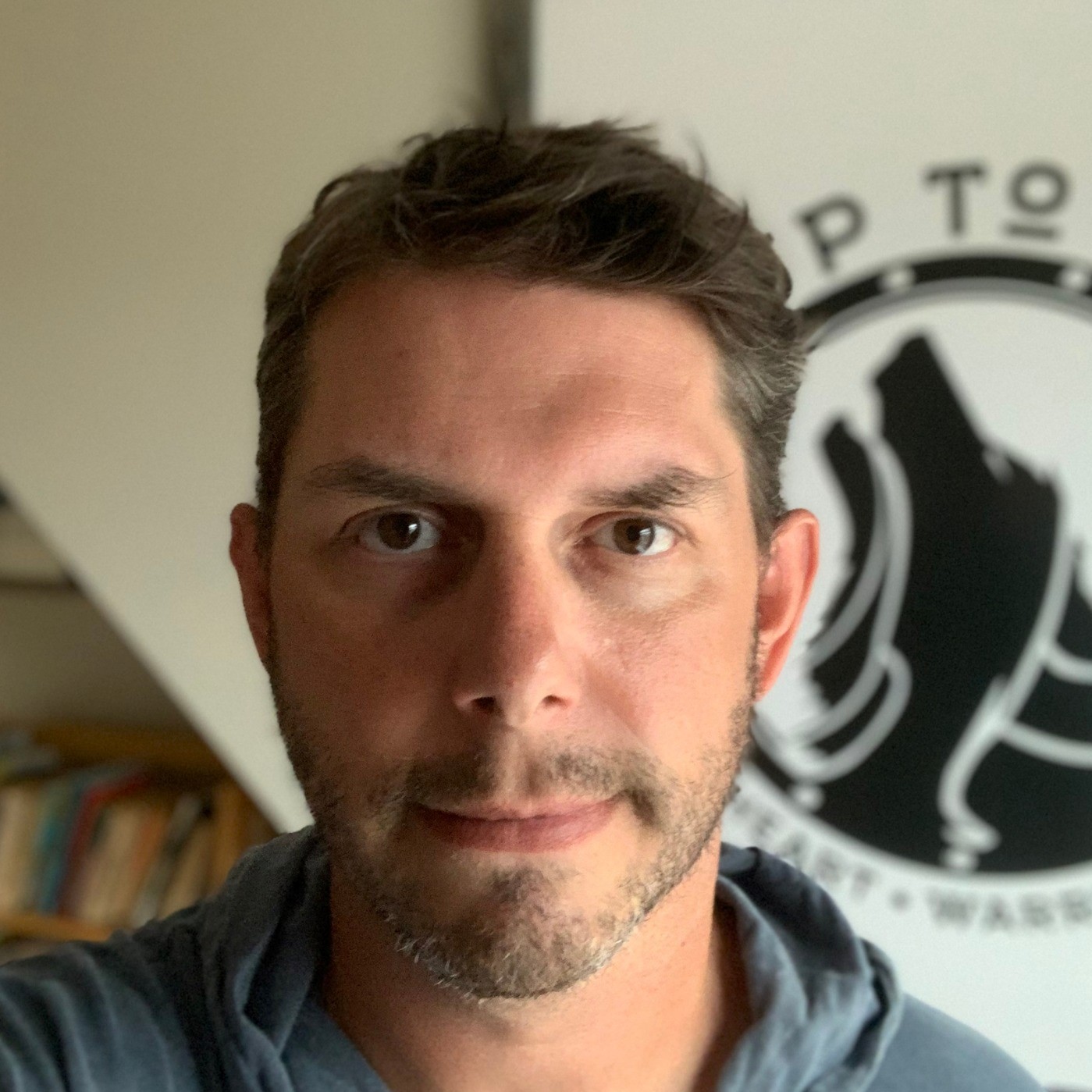Relearning Life | Cancer Friends
Featuring Richard Bandy
The Patient Story’s new series “Cancer Friends” features Andrew and Esther Schorr. They co-founded PatientPower.info, a resource for other cancer patients and caregivers to help them through their diagnosis and treatment.
This segment focuses on Richard Bandy, a physical therapist who was diagnosed with a rare cancer in 2000. He then had to have a major surgery to remove the pseudomyxoma peritonei (PMP) which resulted in almost complete memory loss. Richard discusses relearning his life and passions.
Thank you for sharing your story, Richard!
This interview has been edited for clarity. This is not medical advice. Please consult with your healthcare provider for treatment decisions.
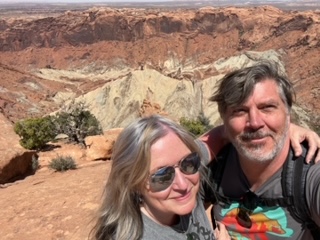
I just wake up happy to be here. Happy to be here at all. Happy to be anywhere.
Introduction
Andrew Schorr, The Patient Story: Hello and welcome to Cancer Friends. I’m Andrew Schorr in San Diego, and joining me from Banff, Alberta, Canada is Richard Bandy. Hi, Richard.
Richard: Hello, Andrew. It’s good to be here.
Andrew, TPS: Thank you. Richard has an incredible story, which I think will inspire many people. He was diagnosed with a rare cancer. Some people have heard of it: “Jelly Belly.” What’s the official name of it, Richard?
Richard: Pseudomyxoma peritonei, PMP, is what it’s called. If you look it up on Google, it’s PMP.
Andrew, TPS: [A] rare cancer, where your abdomen kept filling with mucus. That’s pretty scary. We’re going to talk with Richard about what his life was like before, how he got through this very serious cancer — and quite frankly, almost died — and how he’s put a life back together for himself in Banff, where he’s a pretty active guy.
Richard, let’s start at the beginning. You were for many years in physical therapy. Were you a physical guy? Did you do sports? What did you do?
Richard: Actually, I did a lot of sports. I was Athlete of the Year at my high school. I played basketball, volleyball, tennis, skiing, biking, hiking, badminton, and ping pong, and I played pretty much any sport with a racquet and a ball.
Then I became a physical therapist. I actually went to school on a phys ed program, graduated, did a master’s in exercise physiology. [We] got married, got pregnant, moved to Banff, then lived there for 8 years, and then moved down to the States to become a physical therapist.
Andrew, TPS: Being physical, both with your patients and yourself and all your interests, that was a basic part of you.
Richard: No question. Yes, I was always very active and enjoyed physical activity very much.
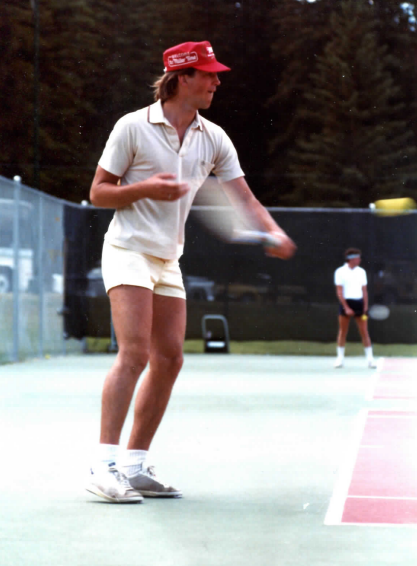
PMP diagnosis and surgery
Andrew, TPS: But then, kind of a bomb hits. I understand you had a TB test. When was that? What happened, and what eventually became your diagnosis?
Richard: It was in late spring of 2000. Because I was a physical therapist, we had to do annual TB tests at the time, and so I did a TB test. It came back positive. [It] ended up being a false positive. They went in and did a chest X-ray on me the next day, and it turned out that I had some fluid in my lungs.
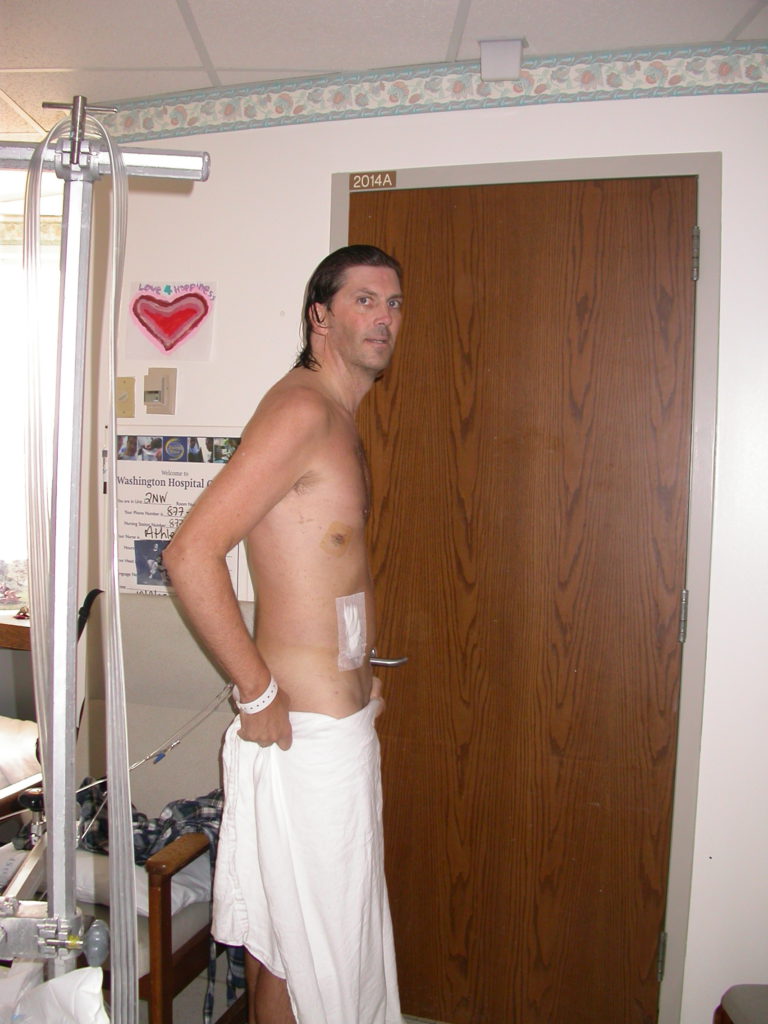
[I] went to the hospital. They biopsied the fluid, found this mucus, and came up with this diagnosis of pseudomyxoma peritonei. It is a mucus-producing tumor that comes off your appendix, and your body fills up with mucus until you die from it.
I had surgery there in June of 2000. They took a gallon of mucus out of me, took my appendix, and sewed me back up. I was back at work 10 days later and continued on, although I got regular checkups every year.
After three years, the cancer came back. The oncologists in Seattle were telling me I could just do debulking every 2 or 3 years to try and rid myself of the mucus. Eventually, it would scar down to the point where they couldn’t do surgery, and I would eventually die from the disease.
»MORE: Patients share how they processed a cancer diagnosis
I looked around to find if there was some other place that I could go, found a place, and had the big surgery. [It was] 12-hours. [They] cut me from xiphoid to pubis, took all my organs out, scraped all the mucus off by hand, sewed me back up, put heated chemotherapy into me 12 hours a day for 5 days, and then sent me on my way.
»MORE: Read more patient experiences with surgery
Surgery complication
Andrew, TPS: That part of it worked.
Richard: Yes, it did.
Andrew, TPS: This is a major abdominal surgery for a rare cancer, and it’s delicate. You had a complication where you were bleeding with a nicked artery, and that affected the oxygen to your brain. What effect did that have?
Richard: I woke up with basically no memory of my life. You know what my first memory was coming back from the hospital? I remember walking down the hallway towards the window with my IV pole in my hand.
That was the first memory I had after the surgery and Sonya, my wife, later told me that it was two weeks after the surgery. That’s my first memory of anything in the hospital. I didn’t really have any memory of my activities before, although since then, some stuff has certainly come back. It was pretty dramatic.
I didn’t really say more than two or three words to anybody for the first year after the surgery. I could speak, but I just didn’t really have anything to say, or I was unable to initiate thoughts. I just had no idea what to say to people.
Andrew, TPS: Language, memory. You did get to go home, but you had to work with an expert and your wife to try to get your life back. That’s taken years, right?
Richard: Yes. I tell people that physically it was probably 5 – 7 years before I was able to do like 80% of the stuff I was able to do before the surgery. Mentally, I still have issues.
I still do accommodation strategies for things that I forget, and I still don’t remember anything from really much before we were even married. I don’t remember the birth of my kids. There are still some things that I don’t remember that I wish I remembered.
For the most part, I’m functional. I can go to the grocery store, I can drive, and I can do a lot of things that people have difficulty doing regardless. I’m very grateful to be here.
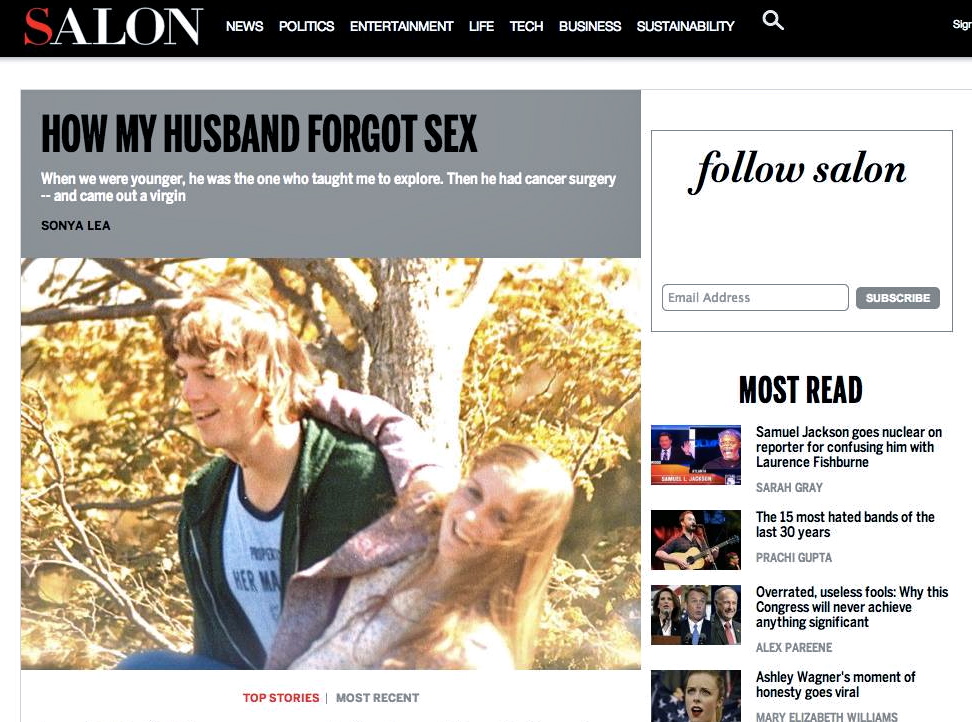
Becoming active again
Andrew, TPS: You retired professionally from physical therapy. Let’s talk about your activities. There you are, having been a very active guy physically. You go through this very rare cancer, major surgery, and complications. You lose your memory, and you can’t speak, really. How have you put things back together to be a physically active guy? That seems to give you joy.
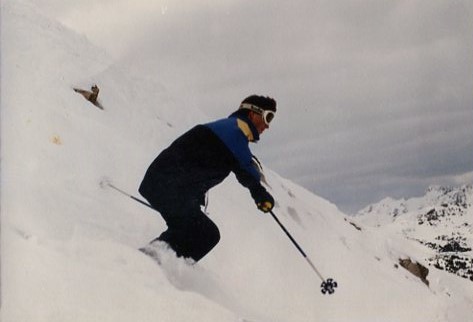
Richard: It does. It gives me a lot of joy, especially living in Banff. It’s such a magnificent place in terms of its surroundings. The mountains are just spectacular around here. I started pretty easily. Walking to the end of the driveway and back was enough for the first couple of months.
Then eventually we got into walking and then hiking. Biking took a while. I eventually got a little mountain bike and started doing some trails around where we were living. Skiing was a real challenge. I came back up to bat for the first time maybe 10 years after the surgery and had not skied in the meantime since before the surgery. I’d skied 100 days one year when I worked up at Sunshine Village, one of the ski resorts locally.
I was a good skier, but I was really freaked out about being on the slopes with my head above my skis. I was really fearful the first few times that I went out, but now I’m back to skiing pretty good blue runs. I skied 60 days this last year, which was obviously wonderful.
What gives you a zest for life?
Andrew, TPS: Richard, what gets you up in the morning? As I hear it, you’re leading a second life. You fortunately survived. You’ve put your life back together pretty well.
When you wake up in the morning with this beautiful setting — you’re in Banff, the Rocky Mountains there, these beautiful mountains, the ski areas, the hiking trails, and you being a physical guy. What gives you a zest for life?
Richard: I will tell you that the natural surroundings that we live in really engage me. I love just waking up in the morning and looking out at the mountains first thing. I don’t have a lot of commitments right now, which is really good for me, because I’m retired.
I’ll have some chores to do around the house, grocery shopping, or activities that keep us busy, but I don’t really have many constraints on me right now, which I’m very, very grateful for. I just wake up happy to be here. Happy to be here at all. Happy to be anywhere.
Andrew, TPS: I want an image of that. Maybe you went down the double diamonds years ago, but when you go down that blue run now, is there sort of an exhilaration that happens?
Richard: There’s no question. It’s one of the most exhilarating experiences that I have currently in my life. Skiing is this controlled falling sort of thing. You’re just kind of falling, falling, falling and just experiencing the snow and the wind and the sky. It really is very thrilling to me. I enjoy it very much.
Andrew, TPS: You said you also do biking. Where you live, you can go biking on a trail, and you could meet a bear, which could be another challenge to your life. You like that kind of exploring as well? You have thousands and thousands of acres to explore there.
Richard: Yes. Sonya and I bought e-bikes a year ago to try them out. It’s been a game changer for us because there are so many miles of trails around us that we’ve kind of explored a little bit, and Sonya had not been on a bike in like 35 years before last year.
When we started riding again, it was just a marvelous experience. We take books, and we go out by the river and sit at the beach, sit at the side of the river and read books for a little bit, or we’ll travel around and go to different trails.
Actually, when we were in Utah vacationing earlier this year, we took our bikes, rode through the national parks, hooked them up, then went for a hike, came back to the bikes, and then rode back to the car. It was just magnificent.
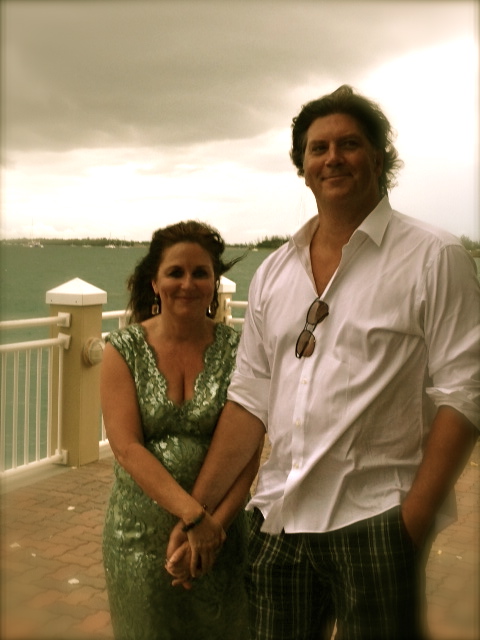
Finding ways to still do the things you’d like to do
Andrew, TPS: Let’s talk about that. E-bikes are a good example. Trying to ride a standard bike, there are people [who] may be huffing and puffing, and it may be difficult. There are adaptive ways of living now. E-bike are an example.
What would you say to cancer survivors who maybe aren’t back to 100%, but there’s a world out there, and there are things they’re interested in? [What is your advice] to find ways to do it, even if it’s different or more limited?
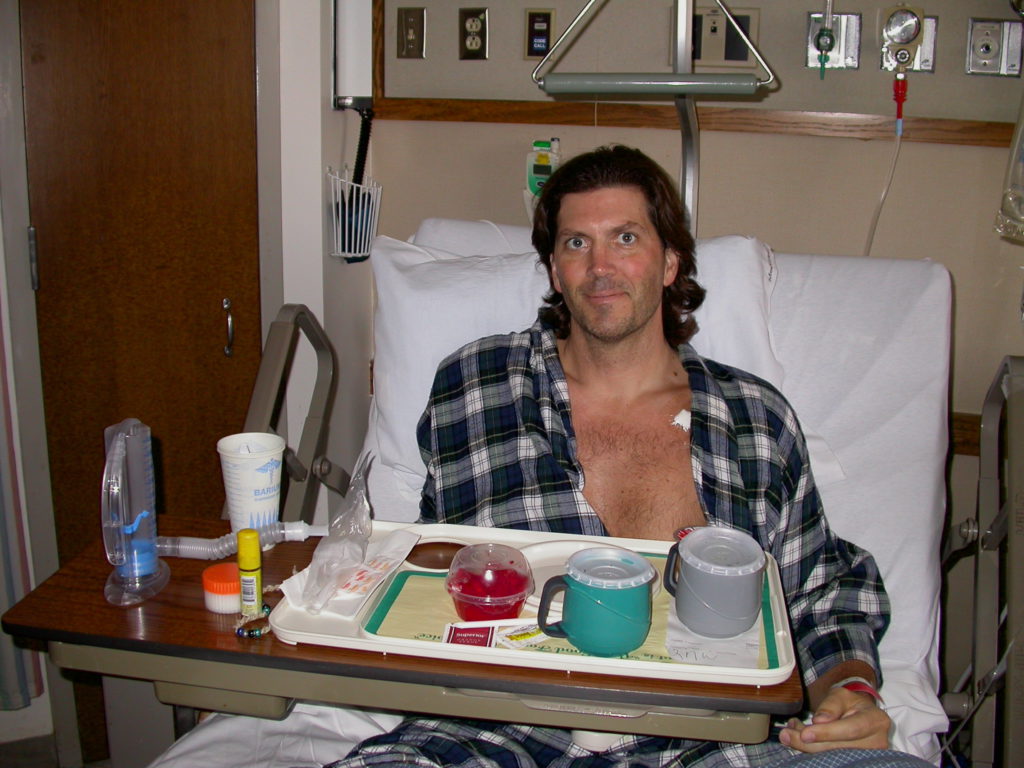
Richard: I would say that it’s definitely worthwhile. It’s worth investigating what is available out there, because there are some different technologies and different adaptive devices that are out there for walking, hiking, biking, swimming, or boating. There are just lots of different things out there.
I think the focus for me was concentrating on what I could do, because there were so many things that I couldn’t do for a number of years after the surgery. I couldn’t walk more than a mile. I couldn’t run at all. My thinking was still pretty wobbly in the first couple of years.
For me, I concentrated on the little things that I could do, [like] the first time I went to the grocery store by myself. This was after I’d become certified to be able to drive again, which is about maybe a year after the surgery. I went to the grocery store, and I was just kind of overwhelmed by the numbers of things on the shelves. [I] just kind of went down two or three aisles, left and went back home, and got maybe half the stuff I was supposed to get.
But that in itself was very thrilling for me because I was able to do something on my own, and it was just a great sense of accomplishment. Finding things that I could do on my own and just little progressions that I made week after week or month after month was very important to me.
Andrew, TPS: There are people, though, who have limitations. They used to lead a more active life. Now they’re struggling to get back to some of it, and it’s depressing, quite frankly. I imagine you had to work through that, too. A sense of loss. How have you gotten past that to celebrate what you can do?
Richard: That took some time. There’s no question about it. Initially, after the surgery, I was actually at such a low state of thought processing [that] I didn’t really feel sorry for myself at all. I was just kind of surviving. That went on for a number of months to the point where, again, maybe a year out, I started thinking about things that I couldn’t do, things that I was trying to be able to do.
One of the big things for me was becoming a physical therapist again, because my neuropsychologist told me I probably could not do it because [of] the amount of thought processing and cognitive processing that it required.
I told him that I was going to do it regardless. [It] became my full-time job [to] read orthopedic manual therapy textbooks. I’d read a chapter and I’d forget 80% of it, and read it and forget 80% of it. I just kept doing it and doing it.
Perseverance was a big thing for me. I eventually became a physical therapist, returned to physical therapy, and worked at it for another 10 years after the surgery. I thought that was pretty good.
Looking forward to the future
Andrew, TPS: No kidding. How do you see the rest of your life now, as far as hopefully continued recovery and enjoying life and those activities?
Richard: I’m very much looking forward to what’s ahead of us. Hopefully, we’re going to be able to travel a little bit over the course of the next few years, COVID notwithstanding. I’m hopeful about traveling and experiencing some different parts of the world that I’ve never seen before.
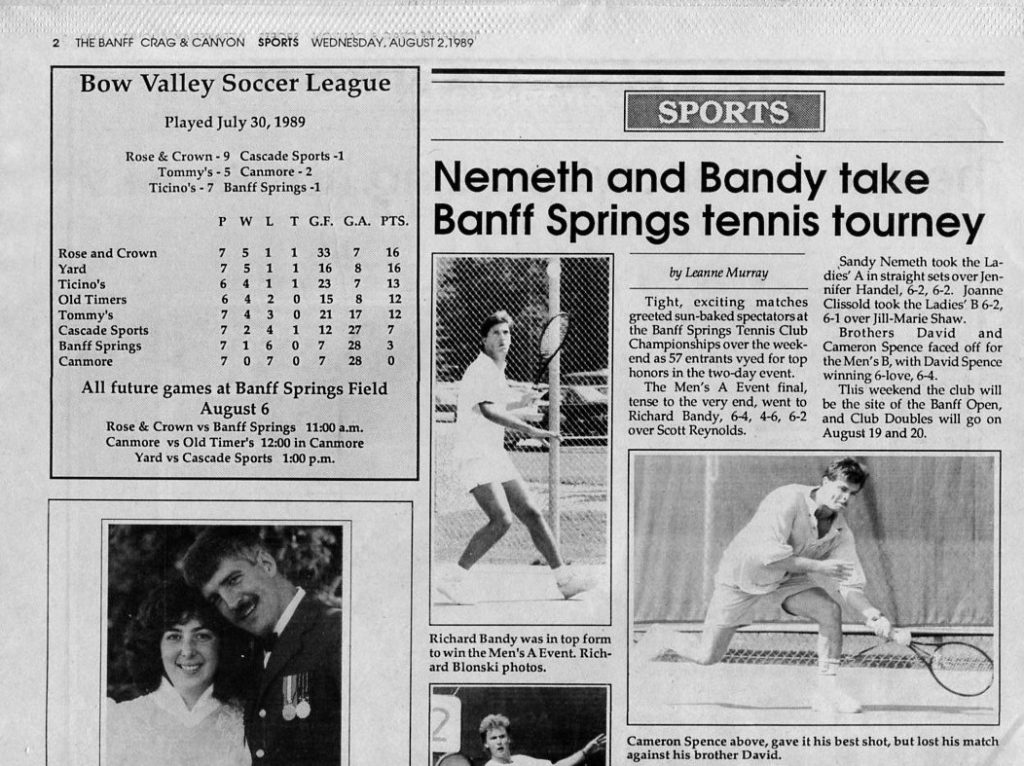
The other thing is just the accommodation strategies, because sometimes I’ll forget that I actually have a brain injury. It does happen. I’ll be in a store, and I’ll try to remember something. I haven’t written it down, and I forget. I’m always conscious of the fact that I’m not quite where I need to be.
I’m always working a little bit to try and shore up my accommodation strategies, put myself through some paces, or do some little mental mind games on my phone, [like] things to try and keep my memory going. I’m really optimistic that we have a fairly long life ahead of us, health notwithstanding, but I’m hopeful.
Andrew: I hope so. Like so many people who’ve been treated for cancer, there can be life after cancer. It may be different. It may not be 100% of what it was before. I really wish you well.
You’re in a beautiful setting in Banff. You have the natural beauty all around you, and it sounds like you’re taking advantage of that. Richard, I just see you biking and going down those ski runs, and your heart beating fast and just really enjoying it. That’s a great image for me.
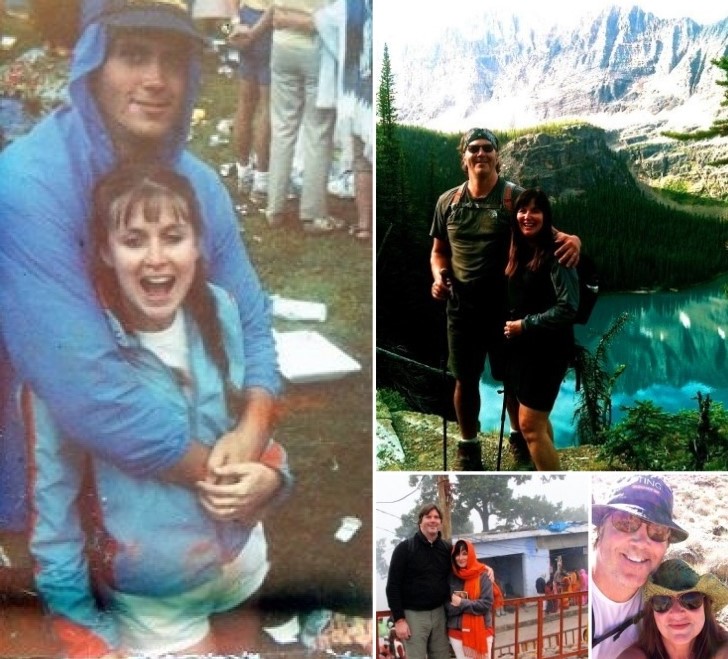
Changes from having a brain injury
Richard: There are two changes that occurred. I used to get really bad motion sickness before the cancer, and after the surgery, I haven’t had a single bout of motion sickness since. It’s been almost 20 years and I’ve been in boats and planes. I would have thrown up multiple times on some of these things, and it never happened, which is really strange for me.
The second thing is that I went from being a visual learner to a kinesthetic learner. When I returned to physical therapy, I returned in a volunteer capacity with a friend of the neuropsychologist that was treating me at the time.
Once I got my hands on patients, my hands started doing things my brain really wasn’t connected to. [They] just started working on their own. That’s kind of how I relearned my physical therapy, and that was kind of interesting as well.
Andrew TPS: It’s an adventure. Life can be different, but it can be fascinating.
Richard: For me, it’s been a real adventure afterward, trying to figure out what’s different and what’s the same.
Andrew, TPS: We’ll continue that adventure, Richard Bandy. Thank you so much for being with us. I know your story, incredible as it is, can give people a lot of hope that you can have a pretty full life after even being treated very aggressively for cancer. Thanks for being with us.
Richard: Thank you, Andrew. My pleasure.
Andrew, TPS: I’m Andrew Schorr. Thanks for joining us, and my cancer friend, Richard Bandy.

Inspired by Richard's story?
Share your story, too!
